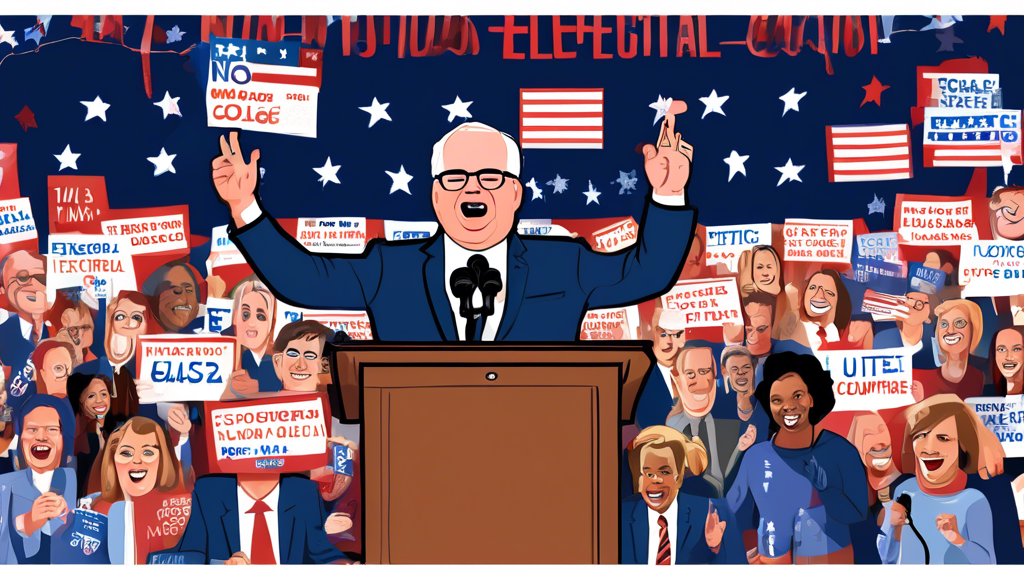
Tim Walz’s Electoral College Comments Prompt Campaign Reassessment, Once More
Minnesota Governor Tim Walz recently ignited controversy during a fundraiser hosted by California Governor Gavin Newsom, where he suggested that the Electoral College voting system should be replaced by a national popular vote for presidential elections. Walz’s comments have led to a series of reactions, prompting a reassessment of his campaign strategy as the 2024 presidential election approaches.
Comments on the Electoral College
During the fundraising event, Walz emphasized that the current Electoral College system is outdated and detrimental to the democratic process. He argued for a transition towards a popular vote, allowing every citizen’s vote to carry equal weight in the election of the president. His remarks have generated discussion on the efficacy and fairness of the Electoral College, a topic that resonates with many voters nationwide.
Campaign Context
In his remarks, Walz also pointed out the strategic importance of battleground states in the upcoming elections. He highlighted the need to secure votes in critical areas such as Beaver County and York in Pennsylvania, western Wisconsin, and Reno, Nevada. These states are pivotal for accumulating the requisite electoral votes, making his comments particularly significant in the context of campaign strategy. Walz’s focus on these regions underlines the often complex dynamics of electoral politics in the United States.
Criticism from Trump Campaign
The comments did not go unnoticed by opponents. Karoline Leavitt, National Press Secretary for the Trump campaign, quickly criticized Walz’s stance, suggesting that he may be setting the stage to question the legitimacy of a potential Trump victory. Leavitt’s comments highlight the fraught political landscape, where declarations against the Electoral College can be interpreted as partisan maneuvering or preemptive justification for electoral outcomes.
Clarification from Harris Campaign
In response to the backlash, a spokesperson for Vice President Kamala Harris sought to clarify Walz’s intentions. They emphasized that his comments were not an indication that he would dispute the legitimacy of a Trump presidency, should he win. Instead, the focus was meant to be on the necessity of garnering the essential electoral votes to ensure a successful campaign.
Public Opinion on the Electoral College
Public sentiment appears to align with Walz’s advocacy for electoral reform. A recent study by the Pew Research Center revealed that over 60% of Americans support a popular vote determining the presidency, while only 35% believe the Electoral College should remain in place. This statistic showcases a significant public desire for change in how presidential elections are conducted.
Walz’s Campaign Gaffes
Walz is no stranger to controversy on the campaign trail. His record includes notable gaffes around various topics, including comments about his military service and past travels to China. Advisory from Vice President Harris suggests he should exercise more caution in his public rhetoric, indicating that consistent missteps could jeopardize his campaign’s viability.
Historical Context
The conversation around the Electoral College is not new. Since the contentious 2000 election, where Al Gore won the popular vote but lost the presidency, and similarly with Hillary Clinton in 2016, the debate over the relevance and functionality of the Electoral College has gained renewed interest. Walz’s remarks bring this ongoing discourse back into the limelight, highlighting a potential shift in how candidates approach electoral strategies moving forward.
As Walz navigates the complexities of the electoral landscape, he faces the challenge of addressing both public opinion and partisan criticism. His recent comments may prompt a recalibration of campaign strategies as candidates increasingly consider the implications of the Electoral College on their paths to victory.
